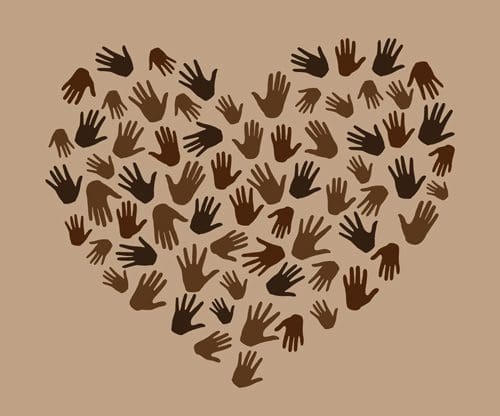 The need for individualized treatment is essential for everyone, but in particular for members of the BIPOC community: Black, indigenous, and people of color. There are many special circumstances and particular barriers to address to ensure these individuals receive proper care.
The need for individualized treatment is essential for everyone, but in particular for members of the BIPOC community: Black, indigenous, and people of color. There are many special circumstances and particular barriers to address to ensure these individuals receive proper care.
Challenges of Addiction Treatment in the BIPOC Community
There are serious obstacles to effective addiction treatment in the BIPOC community. Here are just a few examples.
The Pew Charitable Trusts refers to numerous barriers to successful treatment of substance use disorder (SUD) or alcohol use disorder (AUD) faced by people in the BIPOC community. These include:
- Lack of insurance
- Fear of incarceration
- Systemic racism
- Complications with health and social services
- Stigma surrounding mental illness
- Incarceration instead of actual SUD and AUD treatment
- Cultural misunderstandings
- Transportation challenges
- No community representation with policy makers
Kaiser Health News (KHN) reported in 2019 that “White populations are almost 35 times as likely to have buprenorphine-related visits than Black Americans.” Many forms of opioid treatment include buprenorphine to help reduce cravings and lessen fatal overdoses. Since it’s administered by specially-trained health care professionals, much of this disparity, according to KHN, is the greater ability of White Americans to use cash or insurance for this treatment. A shortage in these specialists often means they’re not staff members of public health care clinics where BIPOC individuals receive care.
KHN sources also note the possibility that some members of the BIPOC community aren’t seeking out this treatment because of either a lack of knowledge or accessibility.
The Journal of Substance Abuse Treatment points to many factors members of the Latinx community encounter including, but not limited to:
- Stigma related to addiction treatment as a “personal failure and defeat”
- Cultural deficiencies in treatment, leading to a lack of confidence in effectiveness
- Lack of desire to refrain from substance or alcohol use
- No social support
- Logistical issues
Latinx individuals, according to the Journal, actually have a higher rate of SUD and AUD than other members of the BIPOC community, but respond less favorably to treatment not specifically tailored to address the factors mentioned above.
The Reuters news organization reports data from the 2018 “Monitoring the Future” study that Native American youth have “much higher rates of illicit drug, alcohol, and cigarette use” compared to non-Native youths, particularly if they live near or on reservations. Experts analyzing the data suggest this early use is likely due to:
- Peer pressure
- Effects of racism and microaggressions that suggest inferiority
- Family instability
- Disruptions in the social fabric of support
Adolescent use at such high rates poses a lifetime threat of developing addiction and eventual fatalities related to SUD and AUD, but health care systems are severely limited on or near reservations, and many Native Americans are too underemployed to have proper insurance coverage.
The National Institutes of Health indicates that Asians and Pacific Islanders (AAPI) in the U.S. have significant issues with addiction, but previous studies didn’t always include them because they comprise approximately 5 percent of the nation’s population. Nevertheless, they’re one of the fastest-growing groups of BIPOC individuals.
AAPI tend to not report mental health and substance use issues—instead, they internalize these conditions as they manifest, then report them as physical symptoms. This creates further diagnostic confusion. Cultural barriers also contribute greatly to treatment challenges, and involve aspects of shame, “losing face” within their communities, social isolation, and stigmas regarding addiction and mental health.
Individual Treatment With Collective Understanding
Many addiction facilities, such as Twin Lakes, have professionals who design specialized treatment tailored to each resident, and this is one primary catalyst to effective rehabilitation.
But just as there are methods for addressing particular group concerns—such as women traumatized by domestic violence, men who struggle with the masculine identity and expectations, current and former members of the military, and older citizens—culturally-sensitive interventions and treatment programs help further the evolution of addiction science. This is often referred to as “cultural competence.”
Research from the University of Washington stresses that treatment specialists investing in their cultural competency “is critical to reducing health disparities and improving access to high-quality care that is respectful of and responsive to the needs of diverse patients. In particular, culturally-competent practice is broadly acknowledged to be an important strategy to increase the quality of services for racial/ethnic minorities in substance abuse treatment. Programs with culturally-responsive policies and assessment and treatment practices have been positively associated with retention in substance abuse treatment.”
BIPOC individuals and their families choosing addiction treatment facilities should ask questions not only about the common concerns, but also about how the staff professionals understand their particular circumstances and what an individual continuum of care plan might include. It’s the responsibility of each facility to address culturally-sensitive issues that may be root causes, present relapse challenges, and prohibit necessary support for recovery.
What You Can Count On at Twin Lakes
Each individual has a decision to make: is my life better or worse with substance and alcohol use? We understand how much courage it takes to move into recovery, but we believe each person has an inherent potential for change and growth and that certain proven principles help us all move toward continuous improvement, deeper relationships, and greater joy, even in the face of difficulties.
Our commitment is to understand who you are so we can help in the most effective ways possible—talk with one of our admissions specialists to learn more.



